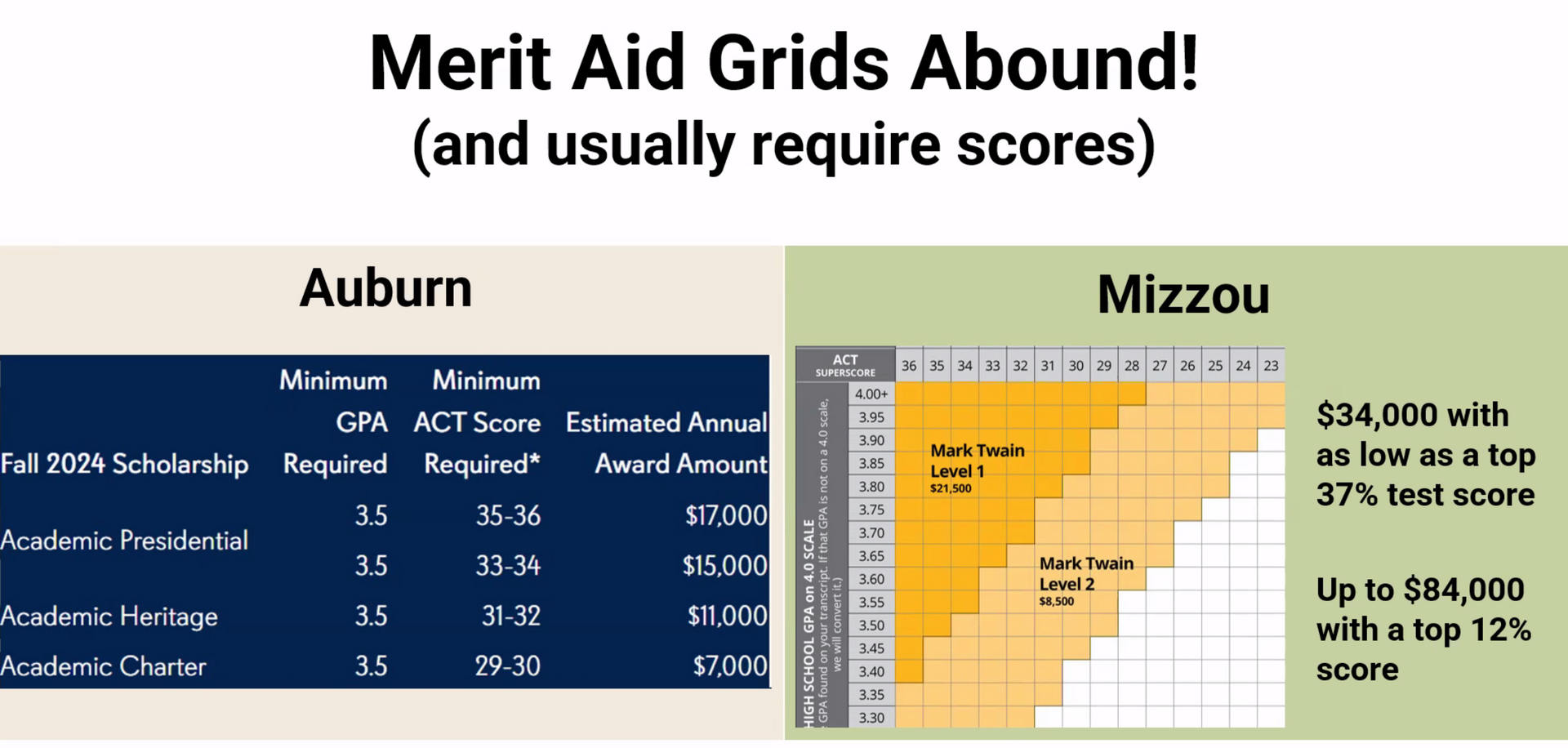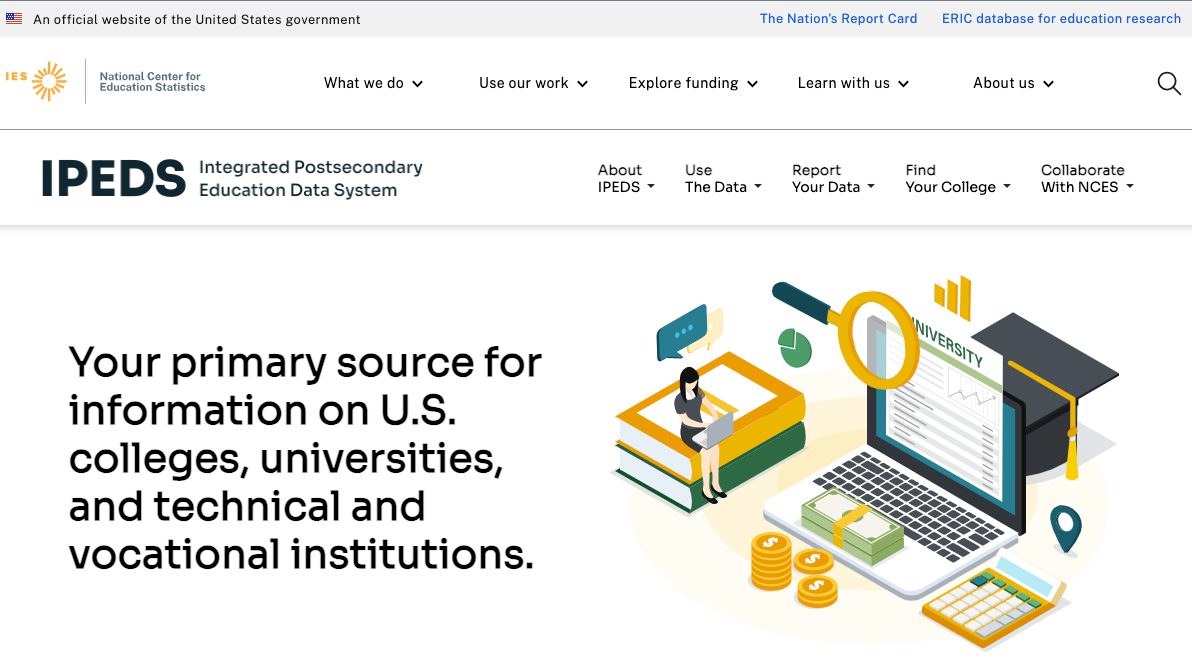Test Optional?
Maybe Not... Should I Submit Test Scores to Colleges?
Insights on College Admissions Testing

MONTHLY PRESENTATIONS BY PEER COLLEAGUES
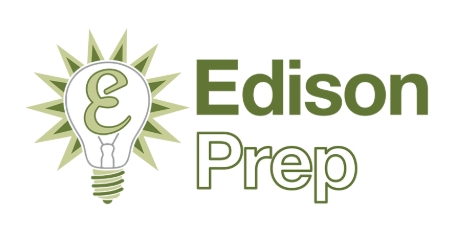
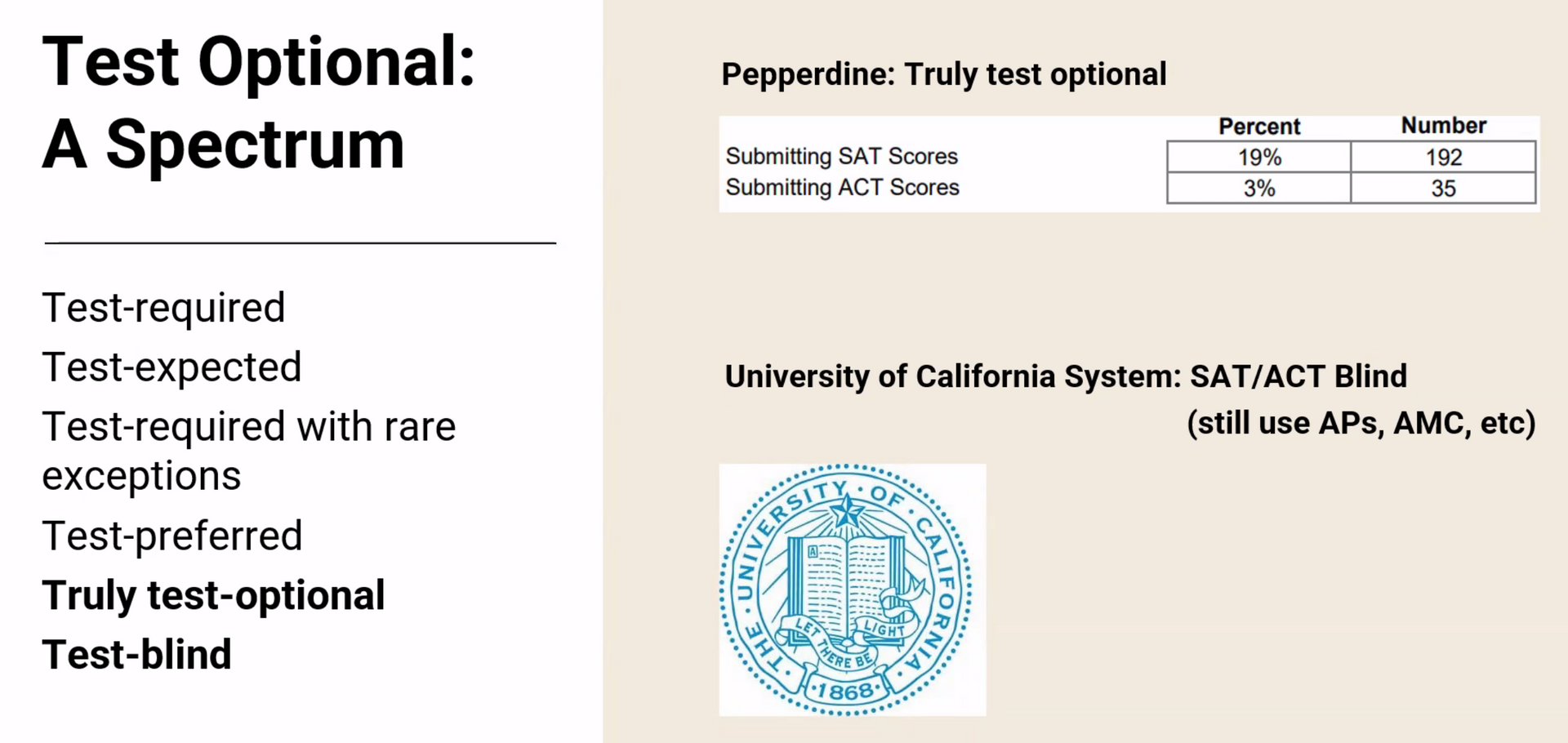
Test Optional Admissions Introduction
This blog post summarizes key insights from Brian Eufinger, an experienced test prep expert from Edison Prep, who spoke at a recent CounselMore Mentorship meeting. He discussed the evolving landscape of college admissions testing, the impact of test-optional policies, and offered advice for educational consultants navigating these changes.

The New SAT and ACT: Key Changes and Considerations
Digital SAT:
The SAT has transitioned to a digital, adaptive format. The test adapts after the first module, placing students in a higher or lower difficulty level for the second module.
Implications of Digital SAT:
Encourage students to aim for the higher module, as scores are capped if they don't reach it.
Desmos Calculator (scientific calculator):
The digital SAT includes a built-in Desmos calculator, but students should also be proficient with their handheld calculators.
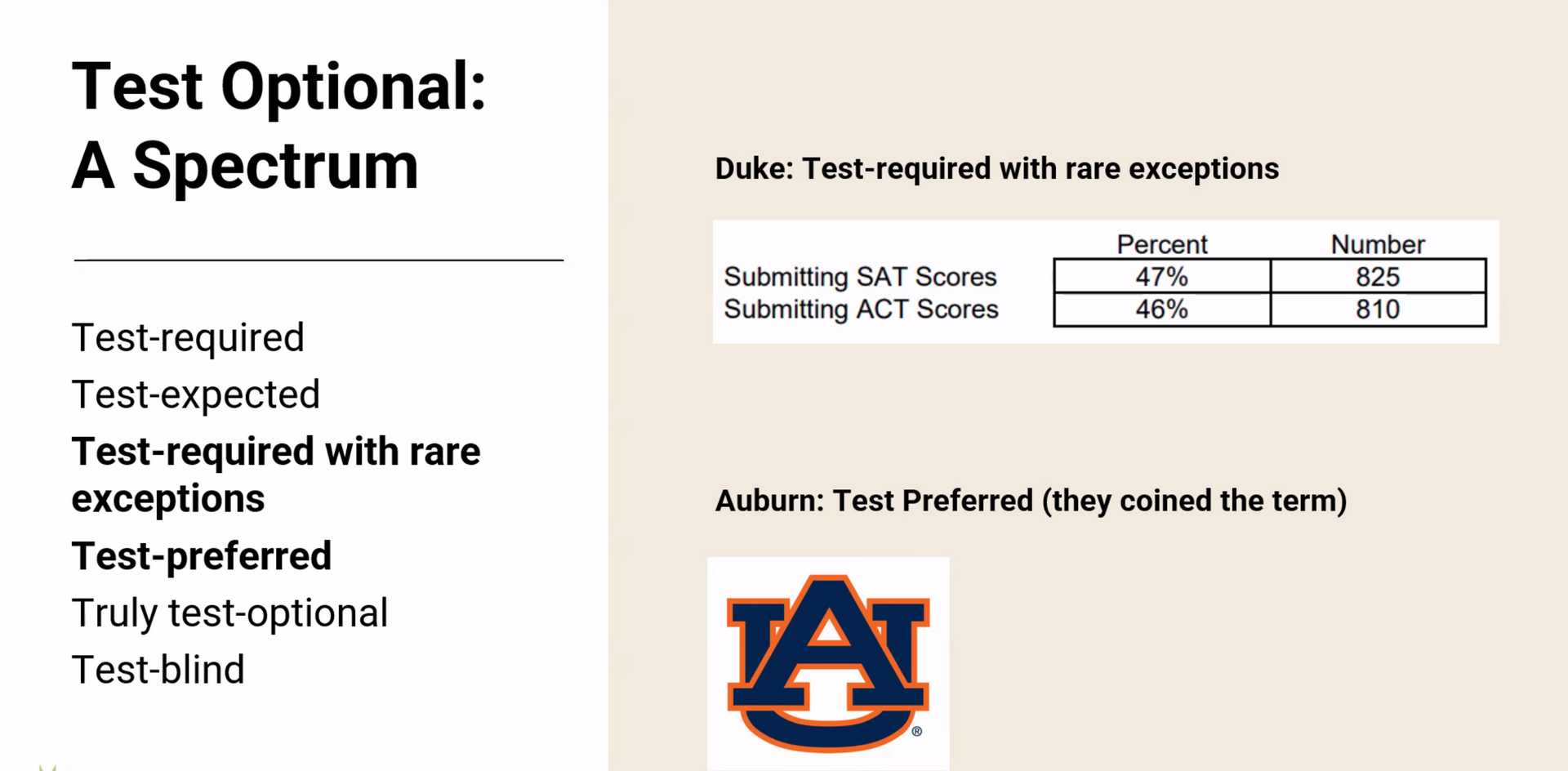
Practice Test Limitations:
The limited number of official practice tests (currently six) is a challenge. Advise students to use third-party materials for early practice, saving the official tests for later.
College Testing Score Volatility:
The smaller number of questions on the digital SAT leads to greater score volatility.
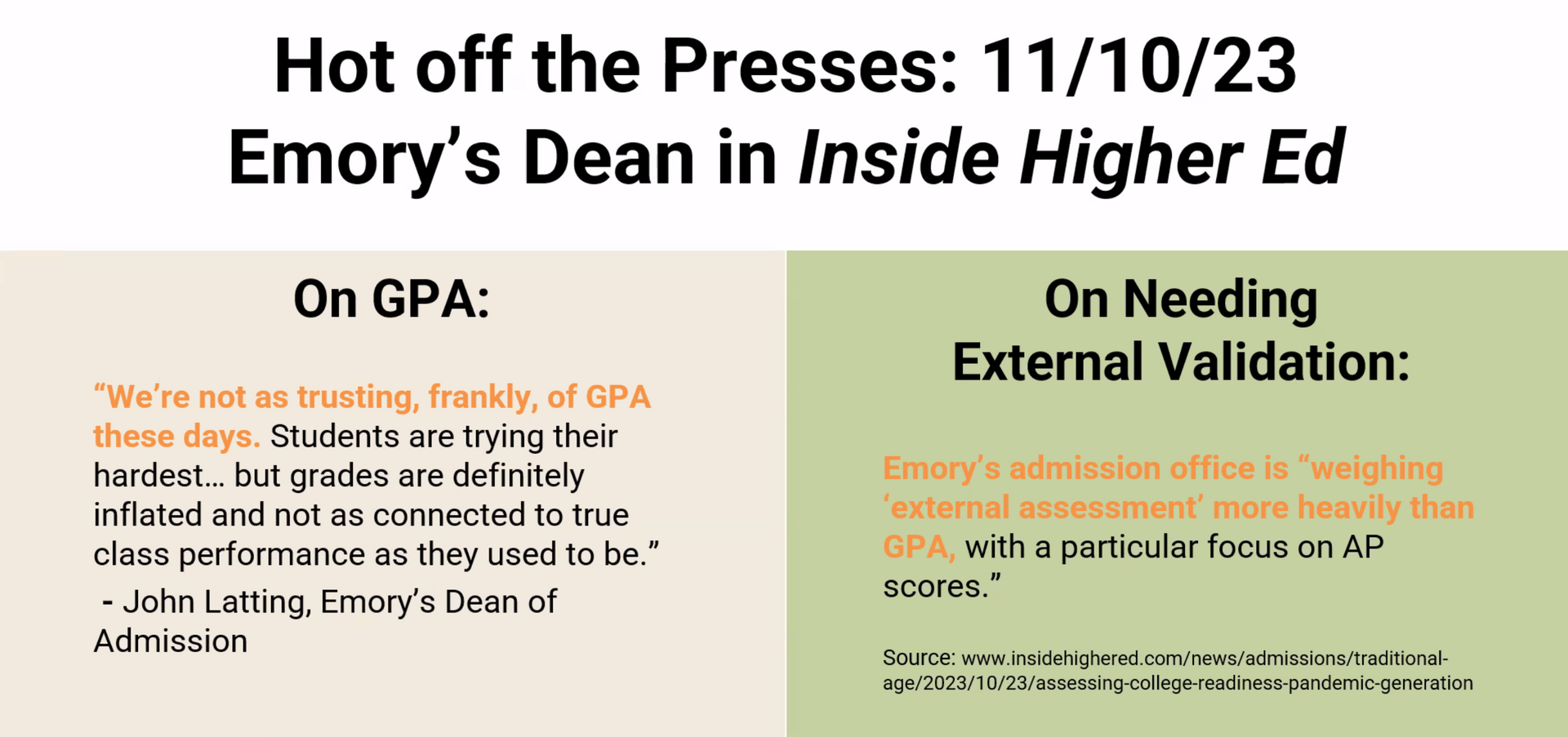
New ACT:
The upcoming digital ACT, launching in September 2025, is shorter than the current format.
ACT Science Optional?
While the ACT is making science optional, students should plan to take this section as most universities will still require it.
Paper ACT Preferred:
The paper ACT is recommended over the digital version as the inability to write on the math and science sections may negatively impact scores.
Practice Test Availability:
Unlike the SAT, the ACT has ample practice material available, including 43 real tests, as the content is not significantly changing.
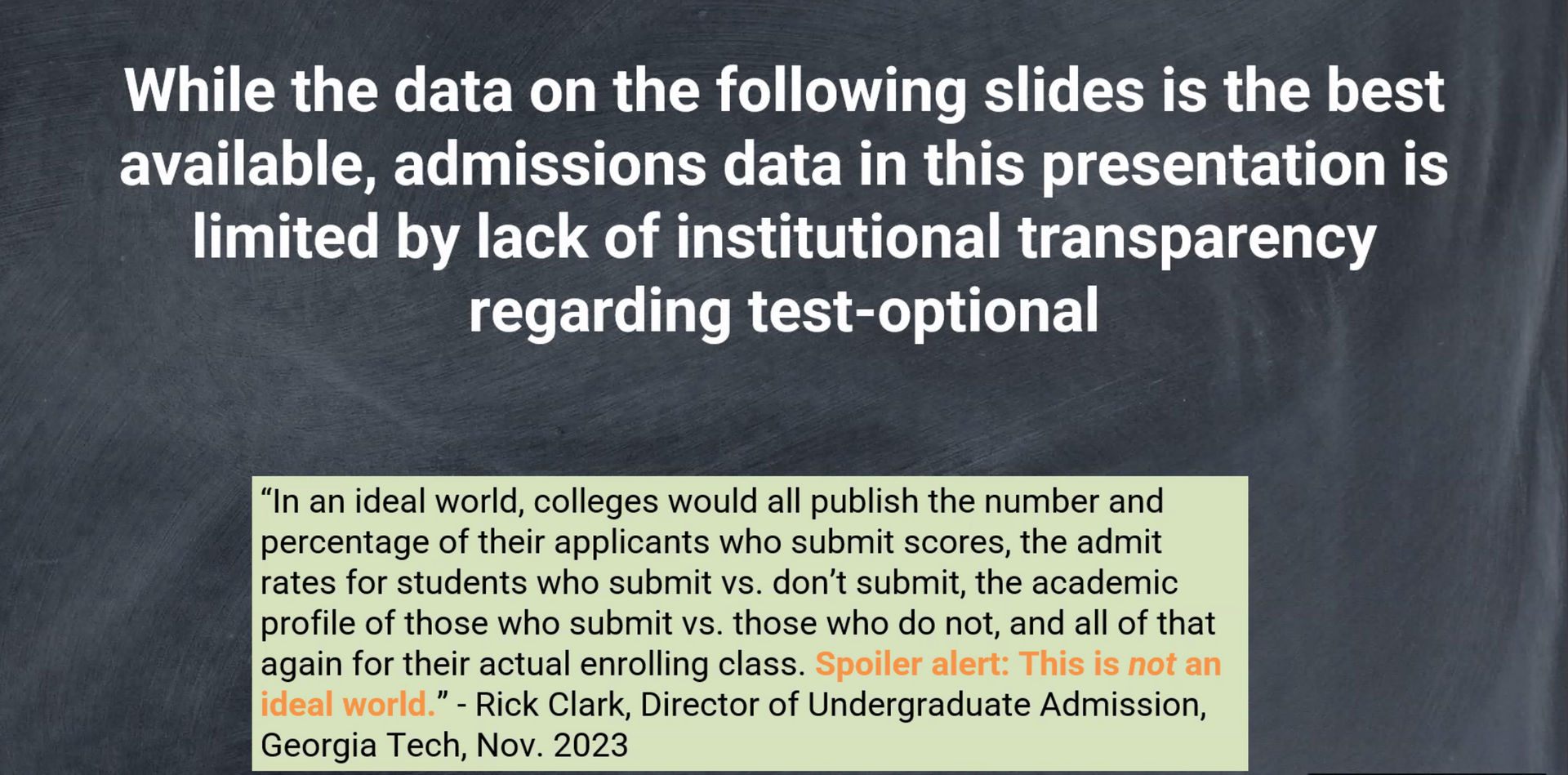
Test Optional Policies: Navigating the Nuances for College Planners and Students
Test Optional Doesn't Mean Test Blind:
While many schools are test optional, submitting strong test scores provides a significant advantage in the admissions process.
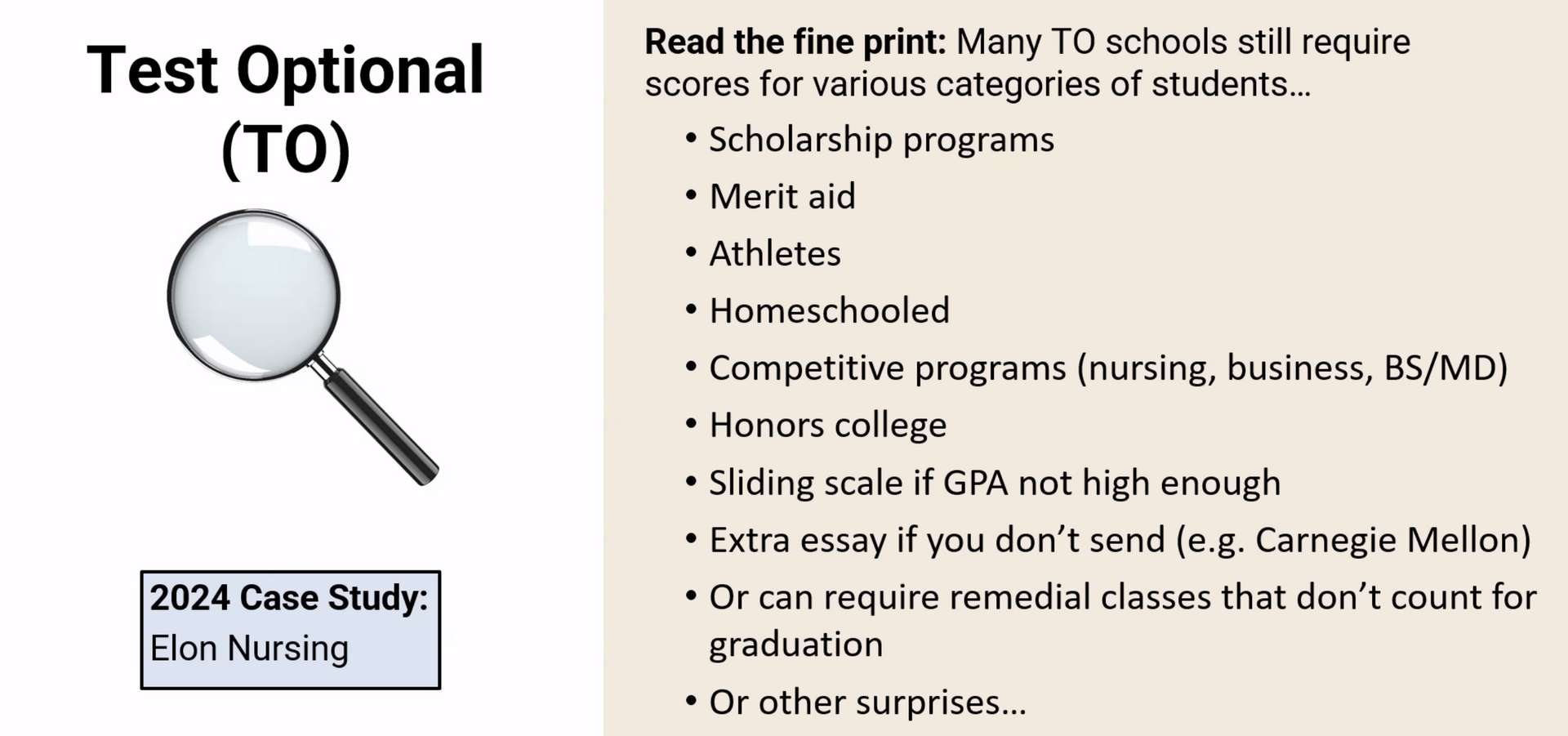
Submitter Advantage:
Data from several universities, including Fordham, shows that students who submit test scores are admitted at a much higher rate.
Context Matters:
The decision to submit or withhold scores depends on several factors:
The student's scores in relation to the university's average scores.
The student's intended major (engineering, nursing, and business programs often place more weight on test scores).
The percentage of enrolled students who submitted scores (check the Common Data Set in CounselMore college data menu).

Test Scores and Merit Aid:
Even if test scores are optional for admissions, they may be required for merit-based scholarships.
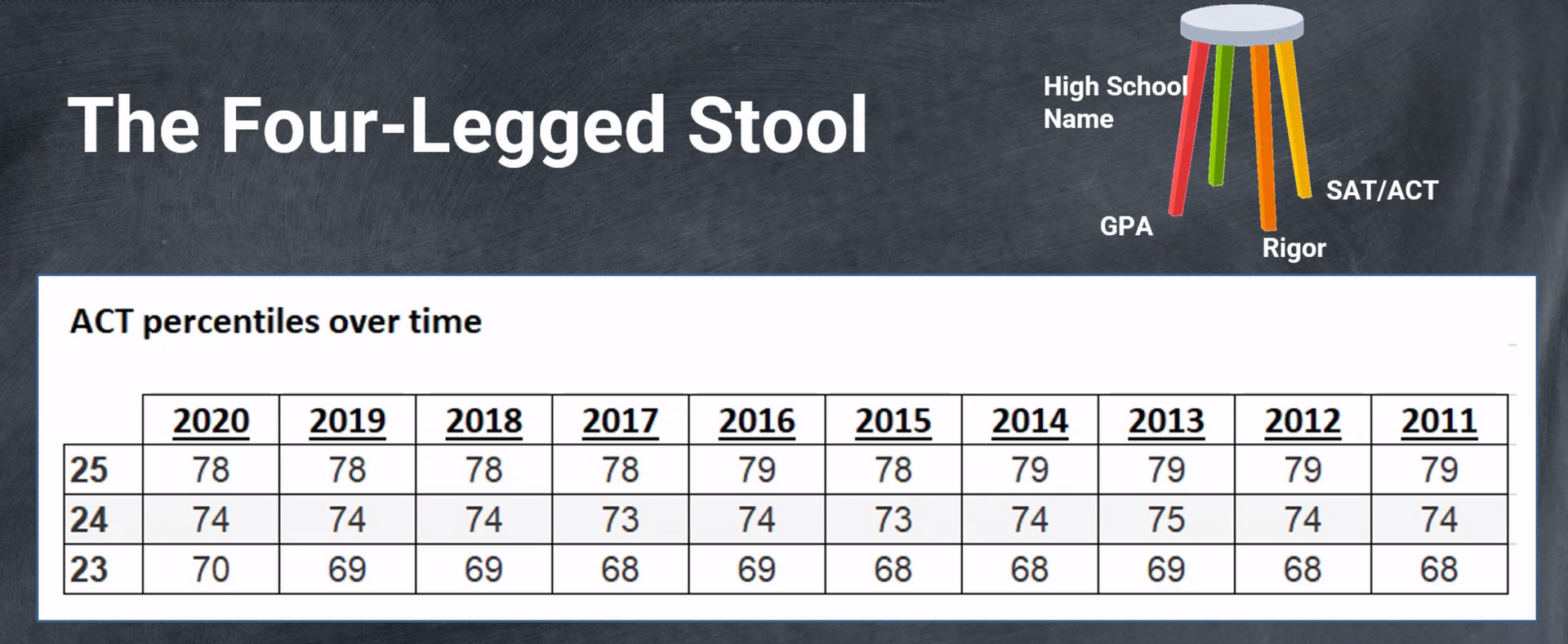
Hidden Test Policies:
Some schools, while publicly test optional, may pressure students to retract submitted scores or discourage submission altogether, impacting merit aid and rankings.
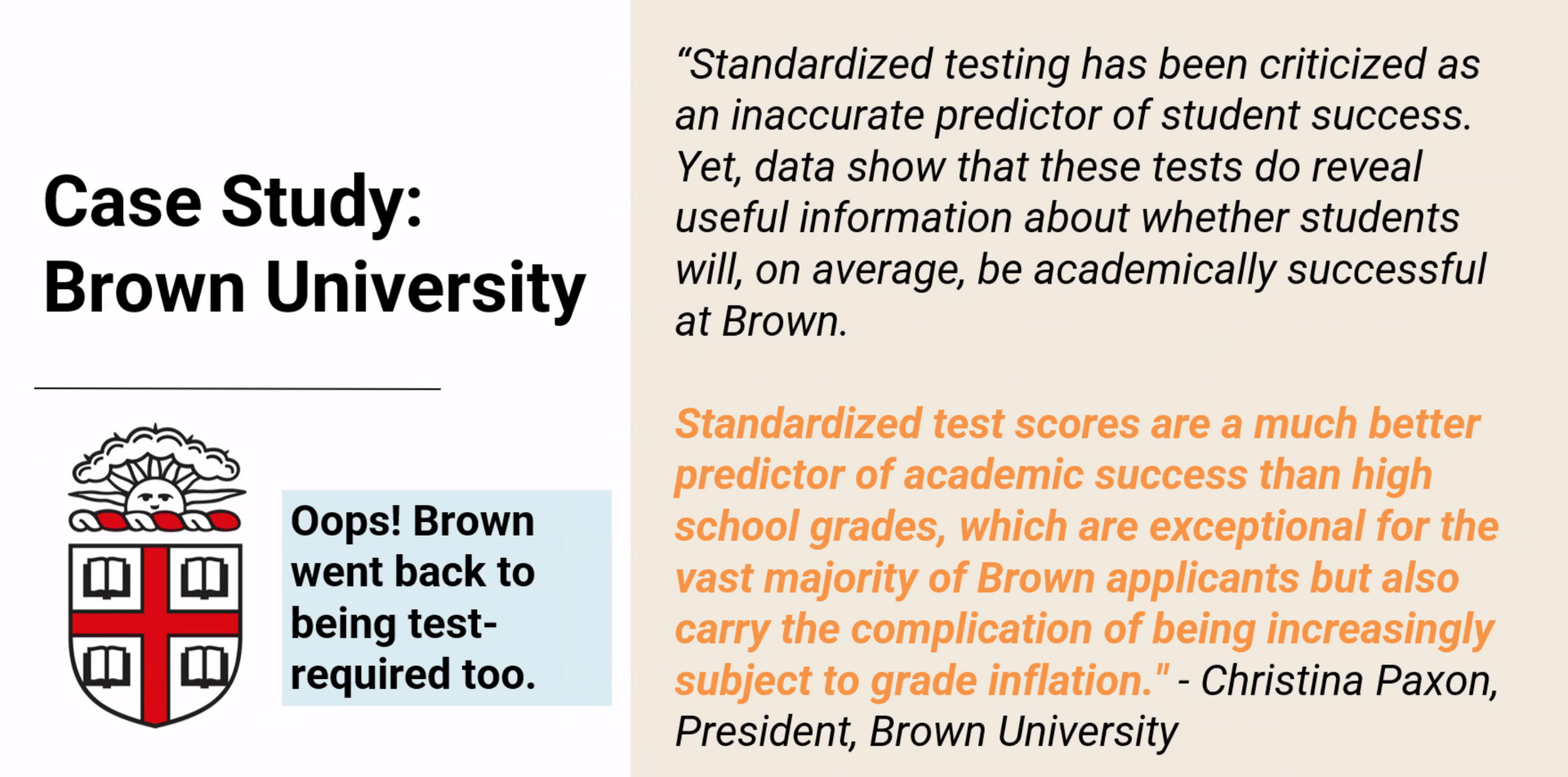
The Importance of Test Scores in a Test Optional World
Grade Inflation and Compression:
Grade inflation and compression make it harder for universities to differentiate between applicants based solely on GPA.
Predictive Value:
Test scores remain a strong predictor of college success, even exceeding high school GPA in some cases (e.g., Harvard).
Equity:
Standardized tests can level the playing field for students from under-resourced schools or backgrounds, offering a measurable indicator of academic potential.
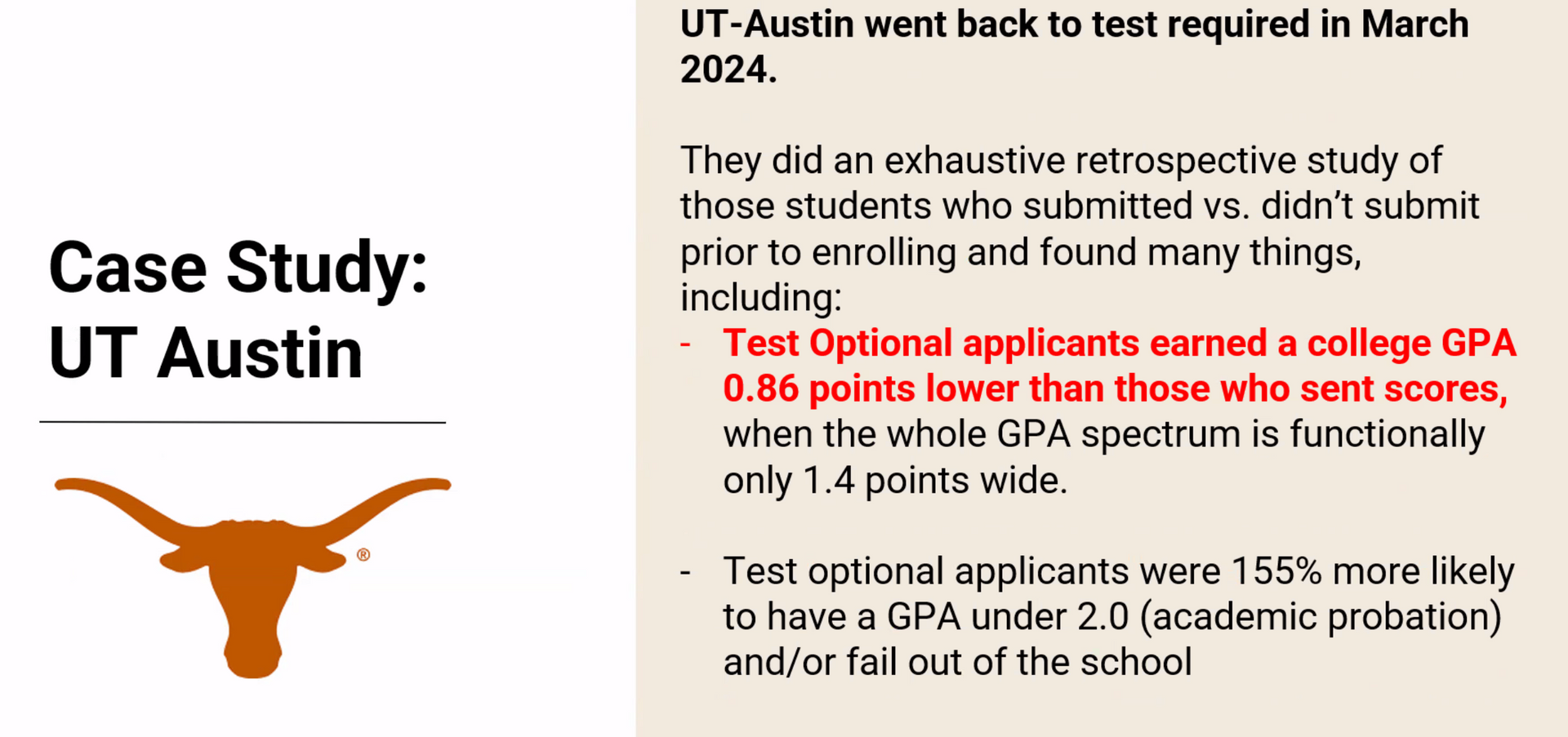
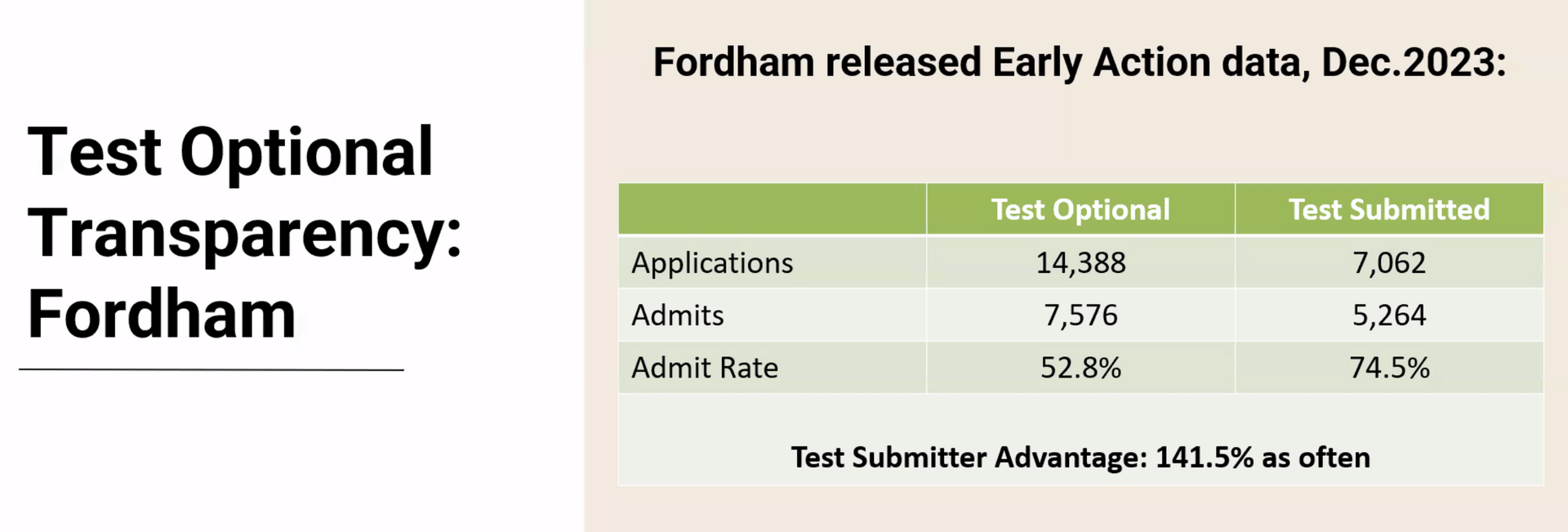
Test Optional Advice for Educational Consultants
Educate Students and Parents:
Explain the nuances of test-optional policies and the submitter advantage.
Encourage Early and Frequent Practice:
Help students prepare early and take practice tests to identify their strengths and weaknesses.
Emphasize the Benefits of Test Prep:
Highlight how test prep can improve scores, reduce stress, and open doors to scholarship opportunities.
Utilize Resources:
Direct students and families to helpful resources like:
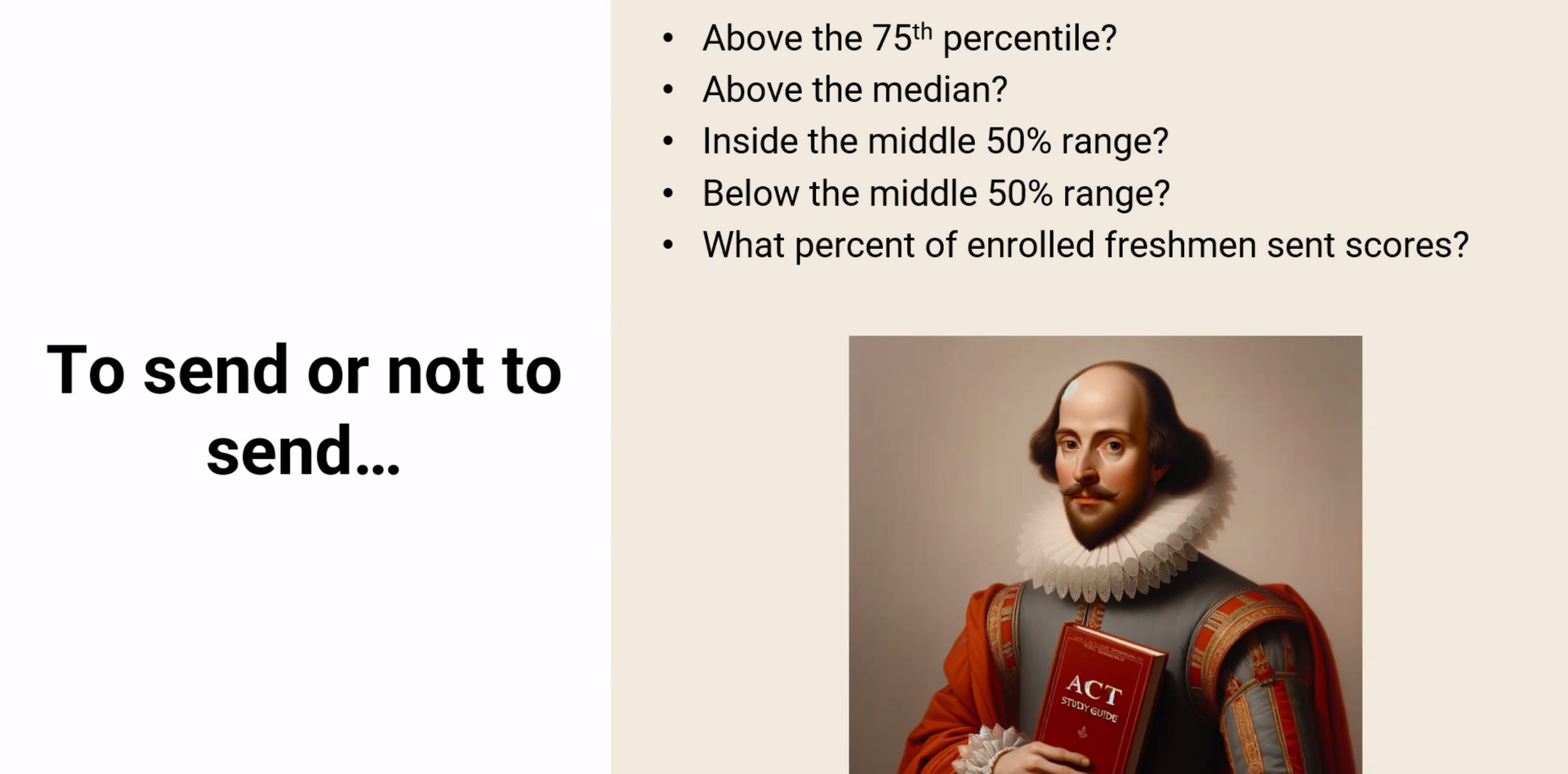
Merit Aid Grids on College Websites:
A free tool that helps students explore merit aid opportunities based on GPA and test scores.
Assessiv.com:
A collaborative platform offering practice materials for the digital SAT.
Reddit.com/r/ACT:
A source for free ACT practice tests.
Mathchops.com:
A gamified platform for math practice.
Stay Informed on Admissions with CounselMore for Educational Planners:
Keep up with the latest developments in college admissions testing and test-optional policies by being a member of an actively engaged community like CounselMore for Educational Planners.
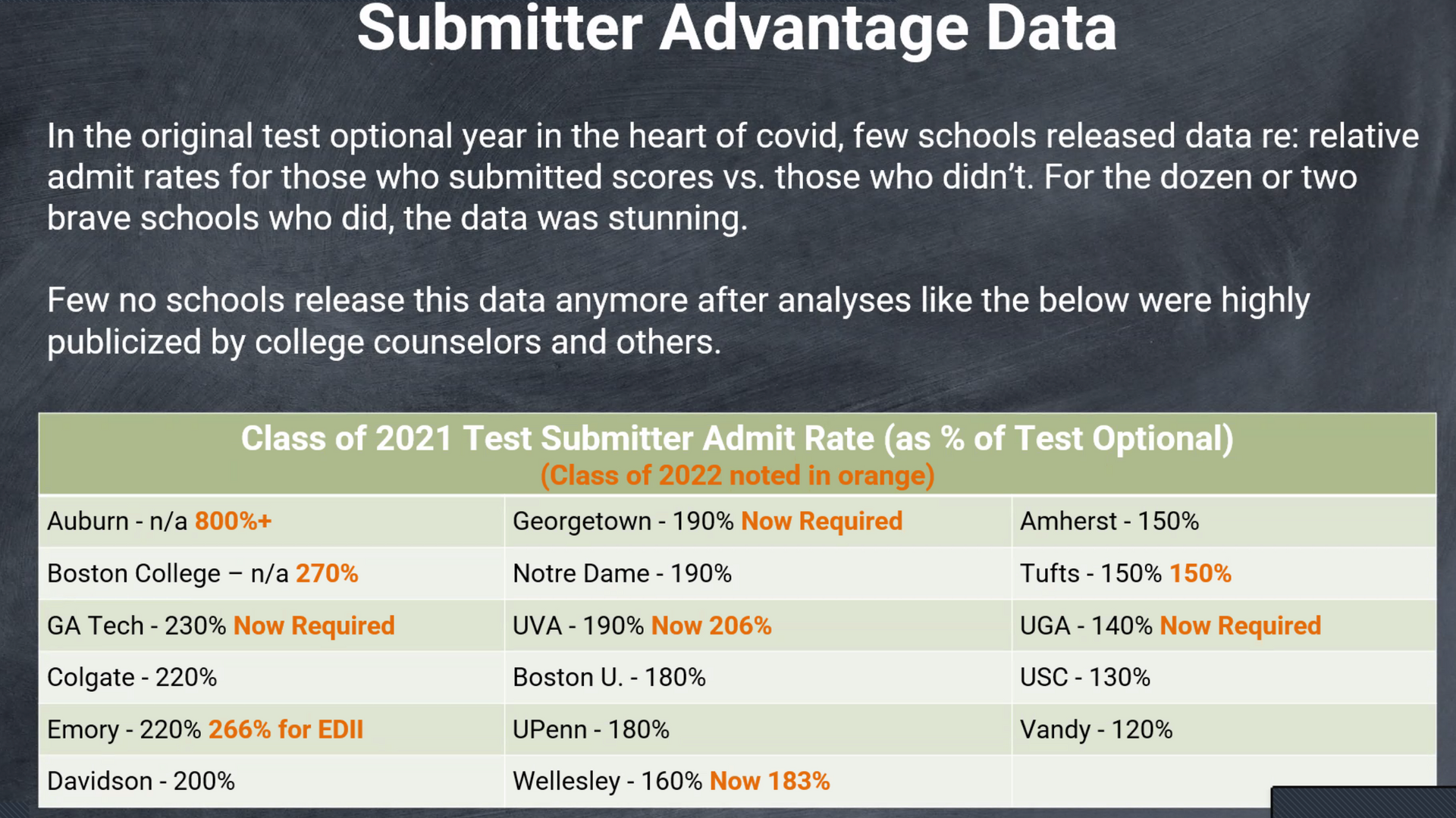
Test Optional Conclusion
While the landscape of college admissions testing is constantly evolving, test scores remain an important factor in college admissions and merit aid decisions. By understanding the nuances of test-optional policies and utilizing available resources, educational consultants can effectively guide students toward successful college applications.
